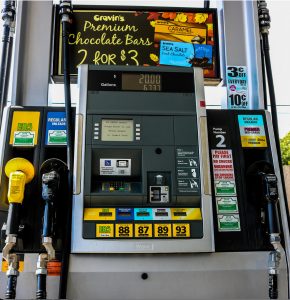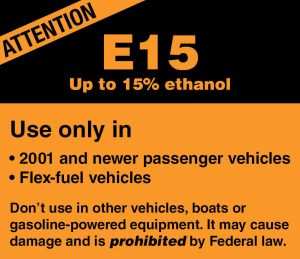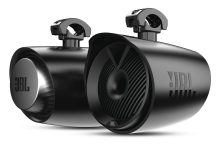This Summer, EPA Isn’t Making It Any Easier For Boaters To Choose The Right Fuel
Harris Poll: Only 22% of consumers know that ‘regular 88’ fuel has more engine-harming ethanol than 87 octane fuel.

With summer boating season in full swing, it’s now common to see recreational boats being filled up at gas stations across the country. However, making sure the right fuel gets in the boat’s tank isn’t always assured: 54 percent of consumers in a recent Harris Poll believed that the small orange E15 fuel warning label on a gas station pump isn’t good enough to protect consumers.
Poll respondents believe the label, about the size of a pack of gum, needs to be larger, clearer and mandatory on all gas station fuel-dispensing pumps. E15 (fuel containing 15 percent ethanol) is prohibited by federal law for use in recreational boat engines and voids many marine engine warranties.
Without Warnings
“It’s clear that the Environmental Protection Agency has not done enough to protect boat owners and a range of consumers,” said Boat Owners Association of The United States (BoatUS) Manager of Government Affairs David Kennedy. “Some fuels are being marketed and sold to consumers as low-cost alternatives but without having the necessary clear warnings on the pump that highlight increased ethanol content.
“Regular 88” fuel, typically the cheapest choice at the pump, contains 15 percent ethanol (E15), enough to harm a vessel’s motor and void the engine manufacturer’s warranty. Only 22 percent of consumers in the Harris Poll correctly identified the fuel as E15.”
“We are cautioning our members this summer that they may find badly labeled fuel choices at the pump and inadequate education around ethanol-blended fuels that were never intended for recreational vessels,” Kennedy added. Boaters have no love for ethanol in their gas due to the proven damage it causes to boat engines and fuel systems.
Why?

Photo Courtesy of NMMA
BoatUS, along with additional stakeholders, is asking why, after consistent urging, EPA has not done a better job warning boaters, those with gasoline-powered equipment, and vehicle owners not warrantied for fuels above E10 to stay away from this new generation of higher ethanol fuels intended to increase America’s consumption of government-subsidized corn-based ethanol.
In comments filed June 29 by BoatUS and its partners on EPA’s proposed Fuels Regulatory Streamlining rulemaking provisions on mitigating misfueling with 10.5 percent to 15 percent ethanol (E15) fuels, the group of consumer and industry associations said, “As EPA has worked to broaden the availability of E15 in the U.S., including most recently in last year’s repeal of seasonal restrictions on the sale of higher-blend ethanol fuels, our organizations have consistently urged EPA to implement a more effective Misfueling Mitigation Program. … The misfueling of marine engines and vessels, off-road vehicles, motorcycles, and outdoor power equipment places significant burdens on both the American consumer and product manufacturers. Risks outlined for consumers include potential product damage and/or compromised performance, economic loss and potentially unsafe products.”
Urging Education
The partners urge public education efforts; improvement to the ethanol content warning label type, size and pump location; evaluating the adoption of different fuel pump nozzle sizes; ceasing misleading marketing of ethanol fuels; evaluating the use of physical barriers and keypad systems; and offering a dedicated pump for E0 (0 percent ethanol) fuel.































